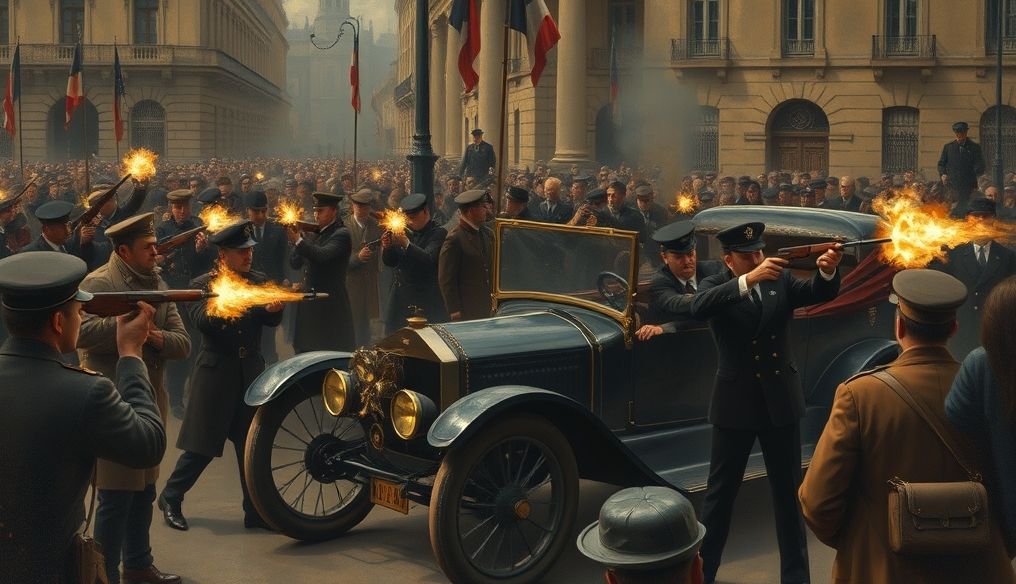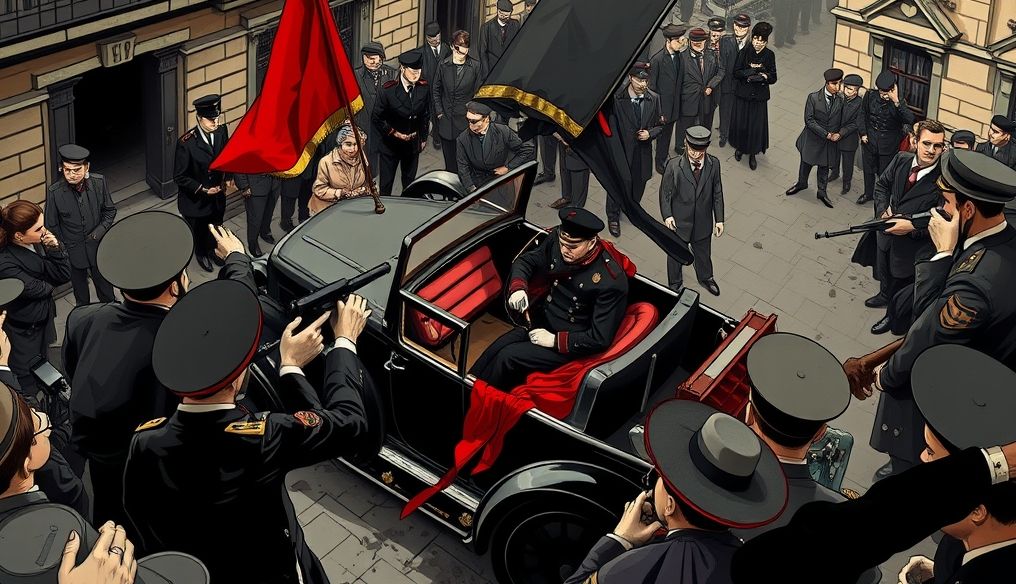Introduction: A Complex Web of Alliances and Tensions
World War I, also known as the "Great War," was a global conflict that began in Europe in July 1914 and ended in November 1918. The assassination of Archduke Franz Ferdinand was merely the spark that ignited a powder keg of tensions that had been building for decades. To understand how the war started, we must look at the root causes that led to its outbreak.
1. Imperialism: The Scramble for Colonies
In the late 19th and early 20th centuries, the major European powers competed to expand their empires in Africa and Asia. This imperial rivalry led to increased friction and tensions between these powers. For example, Germany, Britain, and France competed for control of regions in Africa, leading to crises such as the Agadir Crisis in 1911.
- Economic Competition: Countries sought to control natural resources and new markets.
- Geopolitical Control: The goal was to dominate trade routes and strategic locations.
- National Pride: Empire was seen as a symbol of national power and prestige.
2. Militarism: The Frenzied Arms Race
As tensions between nations escalated, European powers began building up their armies and navies at a frenzied pace. This arms race created an atmosphere of fear and mutual suspicion. Germany, in particular, sought to build a strong navy to challenge British dominance of the seas, leading to a naval arms race between the two countries.
Statistics: Between 1870 and 1914, military spending in Europe increased by 300%.
- Large Armies: Countries maintained large standing armies in peacetime.
- Military Technology: New and destructive weapons were developed, such as machine guns and poison gas.
- Military Planning: Complex military plans were developed for attack and defense, such as the German Schlieffen Plan.
3. Alliances: A Safety Net or a Death Trap?
In an attempt to maintain peace and the balance of power, European powers formed military alliances. However, instead of being a safety net, these alliances amplified local conflicts and dragged more countries into the war. There were two main alliances:
- The Triple Entente: Britain, France, and Russia.
- The Central Powers: Germany, Austria-Hungary, and the Ottoman Empire (later).
Example: If Austria-Hungary attacked Serbia, Russia would intervene to protect Serbia, which would lead to Germany intervening to protect Austria-Hungary, and so on.
4. Nationalism: National Fever Threatens Peace
In the 19th century, Europe witnessed a strong rise in nationalism, with various ethnic groups believing they had the right to self-determination and autonomy. In the Balkans, where different ethnic groups lived under the rule of the Austro-Hungarian and Ottoman Empires, nationalism led to increased tensions and conflicts.
"Nationalism is the belief that your nation is superior to other nations and has the right to control them." - Historian John Mearsheimer
Examples:
- Italian Unification Movement: Uniting the various Italian states into one country.
- German Unification Movement: Uniting the various German states into one country.
- Nationalist Movements in the Balkans: Serbs, Croats, and Bosnians seeking independence from Austria-Hungary.
5. The Balkan Crisis: The European Powder Keg
The Balkans, located in southeastern Europe, was a troubled region due to competition between major powers and conflicting national aspirations. A series of crises in the Balkans, including Austria-Hungary's annexation of Bosnia and Herzegovina in 1908 and the Balkan Wars in 1912 and 1913, increased tensions in the region and made it more prone to explosion.
Key Events:
- 1908: Austria-Hungary annexed Bosnia and Herzegovina, angering Serbia, which claimed the region.
- 1912-1913: Balkan Wars, where Balkan states sought to expel the Ottoman Empire from the region.
6. Assassination of Archduke Franz Ferdinand: The Spark That Ignited the War
On June 28, 1914, Archduke Franz Ferdinand, heir to the Austro-Hungarian throne, and his wife Sophie were assassinated in Sarajevo, Bosnia, by Gavrilo Princip, a Serbian nationalist member of the "Black Hand" organization. This assassination was the spark that ignited World War I.
Reactions:
- Austria-Hungary: Sent an ultimatum to Serbia with harsh conditions.
- Serbia: Accepted most of the conditions, but Austria-Hungary considered the response insufficient and declared war on Serbia on July 28, 1914.
7. Chain Reactions: From Serbia to a World War
After Austria-Hungary declared war on Serbia, military alliances began to operate. Russia declared war on Austria-Hungary to protect Serbia. Germany declared war on Russia and France, Russia's ally. Germany invaded neutral Belgium to reach France, leading to Britain declaring war on Germany.
Timeline:
| Date | Event |
|---|---|
| June 28, 1914 | Assassination of Archduke Franz Ferdinand |
| July 28, 1914 | Austria-Hungary declares war on Serbia |
| August 1, 1914 | Germany declares war on Russia |
| August 3, 1914 | Germany declares war on France |
| August 4, 1914 | Britain declares war on Germany |
8. The Role of Political and Military Leadership
Structural causes were not enough to ignite the war. Political and military leadership played a crucial role in making the decisions that led to the war. Leaders such as German Emperor Wilhelm II and Austro-Hungarian Prime Minister Berchtold made hasty and irresponsible decisions that escalated the crisis.
Examples:
- Germany's Support for Austria-Hungary: Germany gave Austria-Hungary a "blank check," encouraging it to take a tough stance against Serbia.
- Miscalculations: Leaders believed the war would be short and swift, and did not realize the potential dire consequences.
Conclusion: A Lesson in Complexity and Diplomatic Failure
World War I began as a result of a complex set of factors, including imperialism, militarism, alliances, nationalism, and the Balkan crisis. The assassination of Archduke Franz Ferdinand was the spark that ignited the war, but the root causes were deeper and more complex. World War I was a humanitarian disaster that killed millions and changed the face of the world forever. We must learn from the mistakes of the past to avoid repeating them in the future.




